Balanda for the Chinese emperor. Welcome back Your Majesty
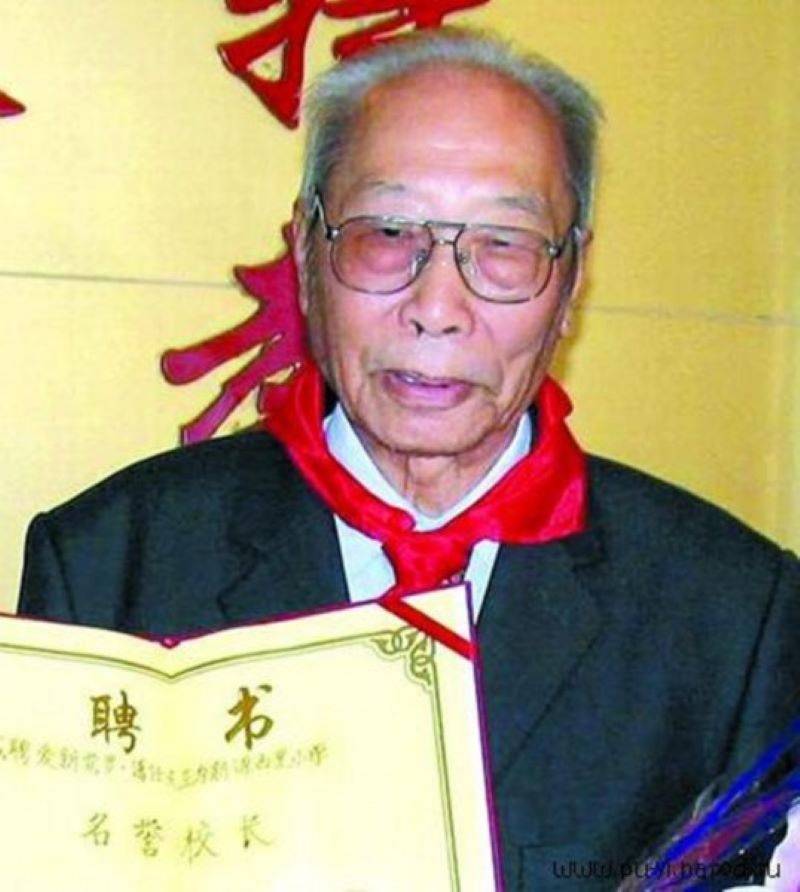
Successes of Soviet Pedagogy
After his triumphant performance at the Tokyo Trials, Pu Yi finally returned to the USSR. His life here proceeded in accordance with his former habits. In the evening, as always, before going to bed, he approached the open window, folded his arms on his chest and, turning to the sky, said: “May the Buddha help us!” Then he got into his bed...
On July 29, 1949, Henry again wrote a letter to Stalin from his place of residence (Write letters, Your Majesty! To Moscow, Comrade Stalin):
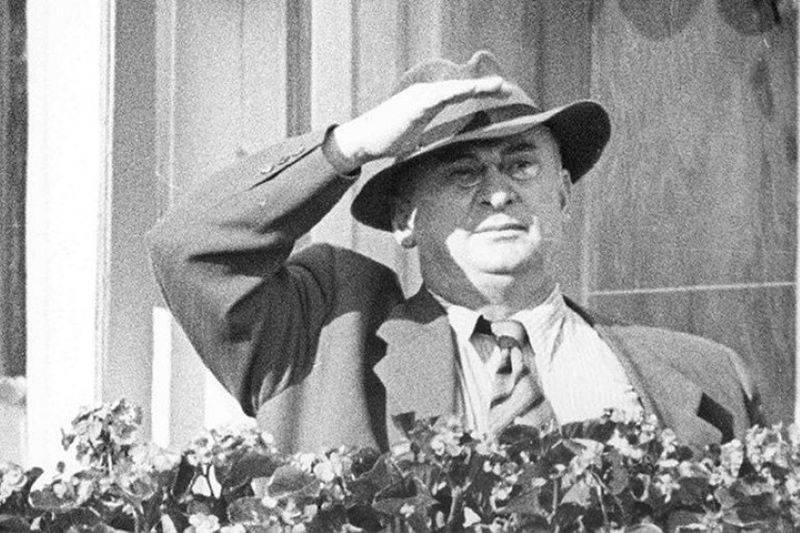
Stalin was at first slightly surprised, and then even delighted and laughed when he learned from Lavrenty Beria that, thanks to the care of the employees of the Khabarovsk State Security Department, the former emperor of Manchuria had mastered the Russian language quite well. By this time, on the direct presentation of Beria, all three mentors of "Comrade Pu" received the "extraordinary" military rank of major and the Order of the Red Star for their special services to the Motherland.
And Nikolai Pegov, the then First Secretary of the Primorsky Regional and Vladivostok City Committee of the All-Union Communist Party of Bolsheviks, who met the former head of state of Manchukuo at a parade in Harbin, came up with a completely unexpected impromptu. He involved Henry Pu Yi in the system of the regional party educational institution - the Khabarovsk Higher Party School.
By that time, Pegov had become the head of the light industry department of the Central Committee of the All-Union Communist Party of Bolsheviks, and without any need decided to increase the party-political training of the recent emperor. The party functionary was very impressed by Pu Yi's "work" at the Tokyo trial. And this despite the fact that he met her mainly through papers. Khabarovsk teachers began to regularly visit the secret dacha to teach Henry Pu.
Mister "Comrade Pu"
Pyotr Yazev said that they did not know how to address a high-ranking student, and were very happy to learn that three special officers had long been calling the ex-emperor simply “Comrade Pu”. However, the teachers added mister to this, which made Pu Yi quite amused, who understood quite well how “master” differs from “comrade” in Russian.
Comrade Pu studied such disciplines as the history of the CPSU, Marxist-Leninist philosophy, political economy, party building, the foundations of scientific communism, the international communist, workers' and national liberation movement. In general, everything that was included in the course of students at the Higher School of Education. With information about all this, Stalin was simply impressed to the core.
Only much later - on July 1, 1950, the Minister of Foreign Affairs of the already communist PRC, Zhou Enlai, told the Soviet ambassador that the Chinese government was ready to accept Pu Yi if the Soviet government considered it timely. Two weeks later, the Council of Ministers of the USSR adopted a special resolution on the transfer to the Chinese authorities of the emperor, his retinue, ministers and generals, who also spent all these years together with Henry quite well in their country cottage. Upon learning of this, Pu Yi was extremely worried. Departure for China meant the collapse of all his plans and hopes.
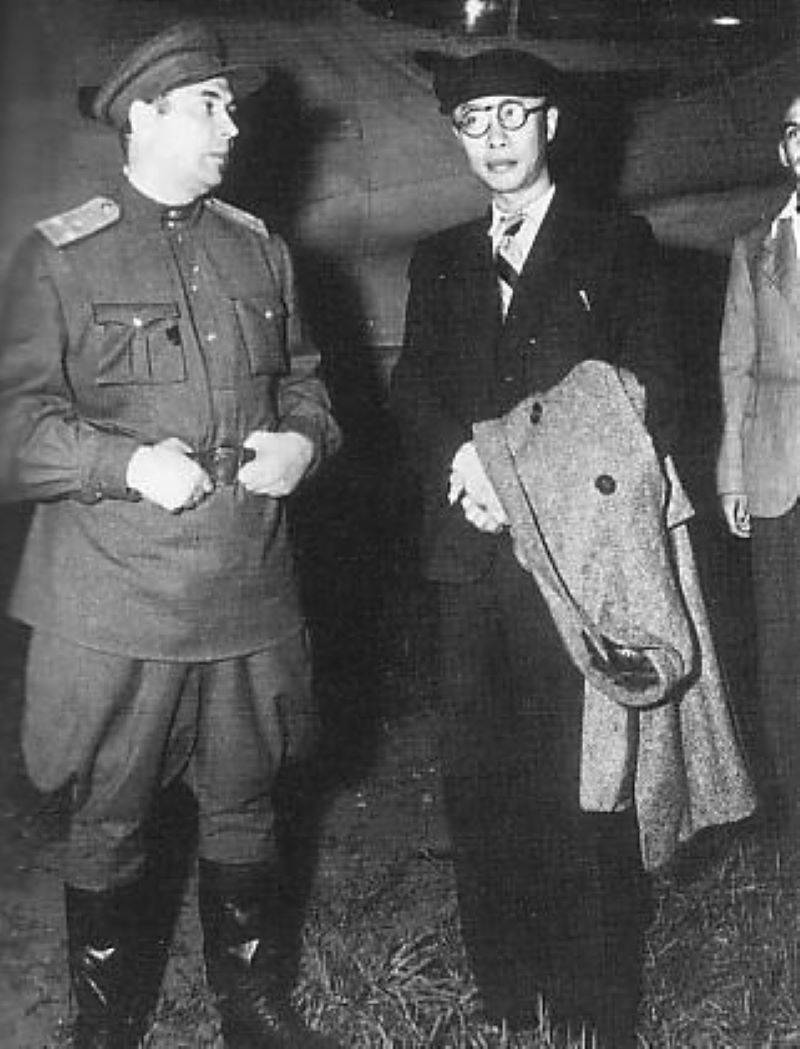
Khabarovsk and Moscow leadership at that time reported that Henry was behaving extremely nervously, and his younger brother, who was next to him, was almost inciting the emperor to commit suicide. After such reports, Pu Yi was eventually isolated from his relatives and transferred to a separate room, where vigilant control was established over him. It was already a real conclusion, albeit not a prison one, and not with a prison gruel, as it used to be.
This is your homeland, son
At the moment Henry Pu Yi was handed over to the Chinese authorities, as the employees present at the time testified, he extended his hand to the representative of the Chinese Foreign Ministry who received him. However, he pretended not to notice the emperor's highest gesture.
Soon the emperor and his retinue were placed in the train car, which was moving away towards Mukden. Thus, for Henry Pu Yi, a five-year-long circle seemed to close, since he met Peter Yazev on the airfield of this city. It was a meeting that saved the emperor from death and radically changed his life, filling it with completely new and interesting content.
It is now known that along with the train, the former emperor took the secret of his family jewels to China. And his savior, then still a captain, and now lieutenant colonel Pyotr Yazev, was soon transferred to a high position in Sochi. On the personal instructions of Stalin, he again received an extraordinary rank not on schedule, becoming a colonel of state security.
Against the return of the former emperor of Manchuria, Henry Pu Yi, to the Soviet Union, as it turned out later, there were not only Americans, but also the Chinese, more precisely, the Kuomintang from the entourage of Generalissimo Chiang Kai-shek. They also actively collected the necessary evidence for this to the Tokyo Tribunal. And after the completion of the ex-emperor's brilliant speech at the Tokyo Trials and his return to the USSR, notes began to arrive with enviable constancy from the Chinese side asking for the transfer of "Comrade Pu Yi."
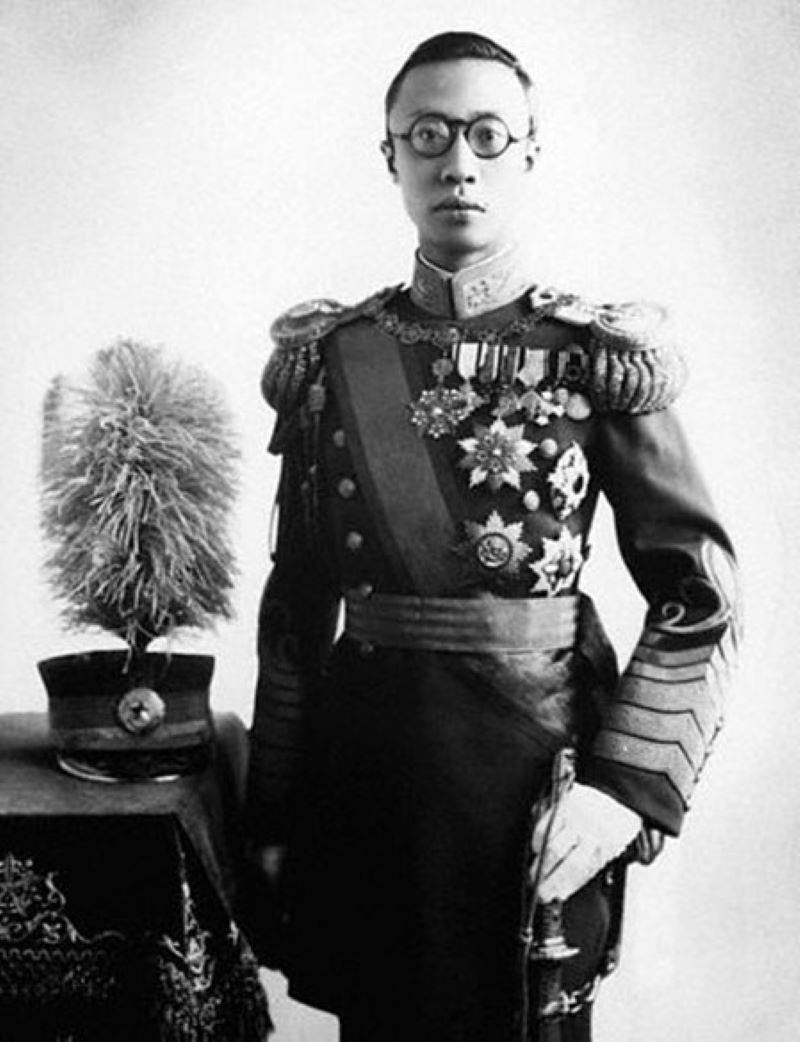
But Stalin was not even going to, despite all the requests of the President of the Republic of China Chiang Kai-shek, to give him the captive emperor and, by the way, also Generalissimo Pu Yi (in the photo he is in uniform). Moreover, knowing nothing about Chinese plans for him. So, for example, in connection with another Chinese note in this regard dated November 23, 1948, a clear Stalinist instruction followed: to refuse the transfer forever, to leave the note unanswered. It was one of the last Chinese notes.
Stalin, most likely, expected that the Chinese communists would sooner or later deal with Chiang Kai-shek, and it would be quite possible for them to extradite the former emperor. And so it happened - when the People's Republic of China was proclaimed, the communist leadership of which called itself the "younger brother" of the USSR, the situation changed radically. On June 1, 1950, the Premier and part-time head of the Chinese Foreign Ministry, Zhou Enlai, in a conversation with the USSR Ambassador to the PRC, stated that the Chinese government was ready to accept Pu Yi if the Soviet side found it timely.
Farewell to Russia
By this time, the political need for the ex-emperor of Manchuria for the head of the Soviet state was gone. And Stalin did not want to refuse friend Joe in this situation. Therefore, on July 14, 1950, in connection with his decision, the government of the USSR adopted a decree on the transfer of the former emperor Pu Yi to the authorities of the PRC.
Upon learning of this decision, the Son of Heaven at first even tried to commit suicide. As he later recalled:
In China, the former emperor was tried under the article "for war crimes", or rather, because he was a puppet of the Japanese military, and sent to prison. He took this very calmly, even philosophically. A few years later, for exemplary behavior and ideological re-education, Pu Yi was completely amnestied.
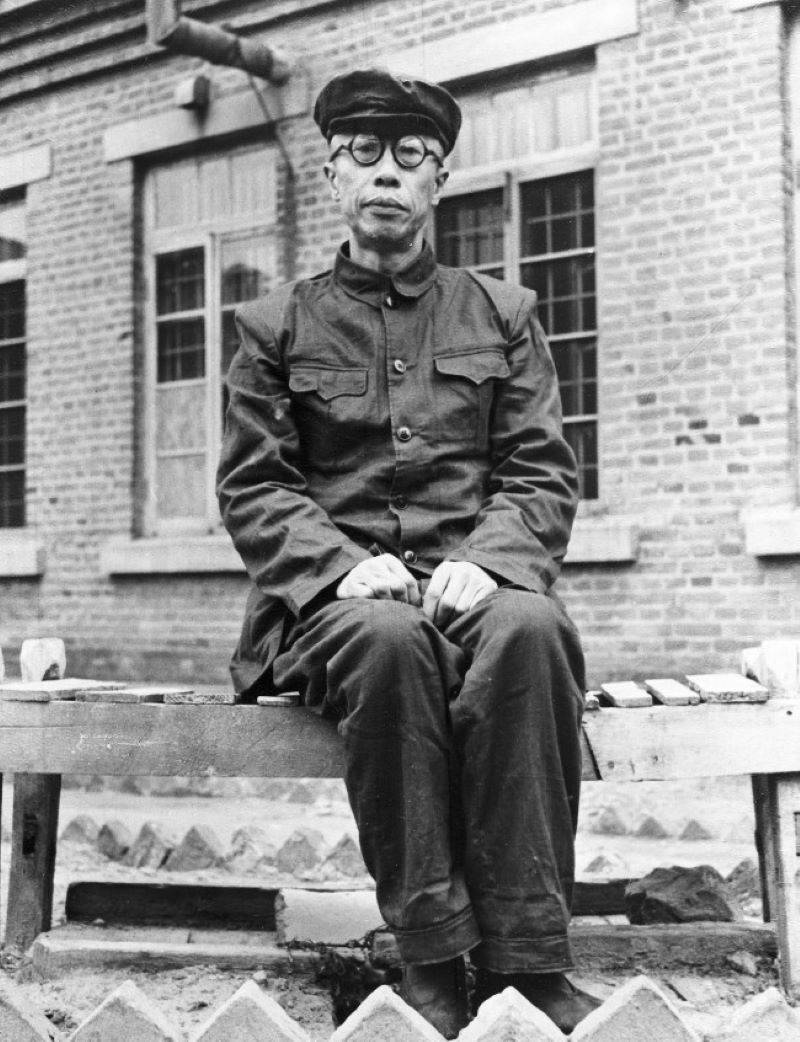
In Beijing, the former emperor, who became an ordinary citizen of the country, began to be called simply "Mr. Pu." He began working as director of the Botanical Garden, where he did what he liked all his life - growing orchids and other flowers. In parallel, he worked on his biography entitled "From Emperor to Citizen." The book was very liked by Mao Zedong, who read it from cover to cover. It was soon published in a large circulation, even by Chinese standards.
The emperor is a citizen and a communist
The great helmsman Mao, the main theorist of the Chinese version of Marxism-Leninism and the creator of the modern PRC, as a result, reacted well to the last emperor of China. Mao constantly expressed his sincere respect and sympathy for him, as an outstanding person in all his manifestations and a worthy representative of the Manchu Qing dynasty. The Chinese leader took it for granted that her representatives ruled the country for more than five hundred years. The former ruler of half a billion people, it was decided to set the same salary as Chairman Mao himself received.
It was with his light hand that Pu Yi joined the Communist Party in 1961, heading the central depository of the party and the State Archives of the country - the National Archives of the PRC. The ex-emperor became a member of the People's Political Consultative Council of China - the organization of the Patriotic United Front of the Chinese People, an advisory body under the leadership of the PRC. The united front includes representatives of the CCP, public organizations, business circles of Hong Kong, Taiwan and Chinese diasporas abroad, prominent public figures ...
The fate of Henry Pu Yi, who was destined for "ten thousand years of happiness", formed the basis of one of the best films of the Italian film director, playwright and poet Bernardo Bertolucci "The Last Emperor". For its production and writing the script, Bertolucci himself was awarded an Oscar, and the leading actors became recognized stars.
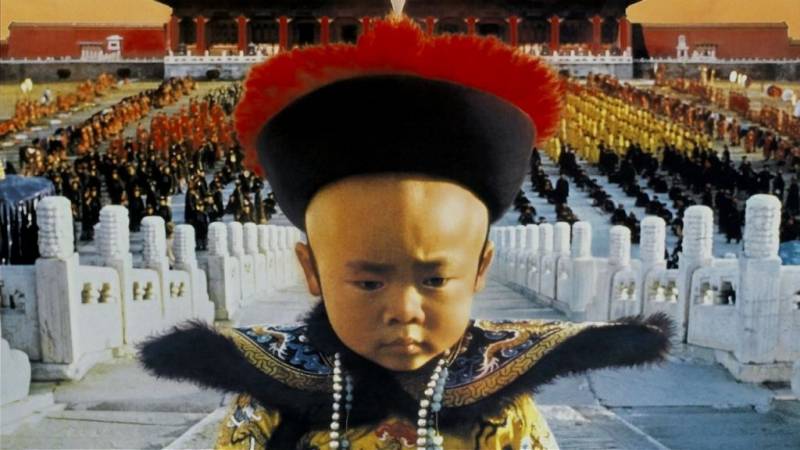
This photo shows a young performer, and the adult Emperor Pu Yi was played in the film by John Lone, an American actor of Chinese origin, who, after two Golden Globes, did not have a career in Asian cinema, and since 2007 he has practically not been filmed. Joan Chong Chen, an American actress of Chinese descent, who played Empress Wan Rong, was the luckiest, collecting dozens of different prizes.
After playing in the cult TV series Twin Peaks, and after that many more roles, she took up directing and charity work. Married twice, has two daughters, lives in the United States, but regularly visits Shanghai to acquaint children with her native culture.
Information